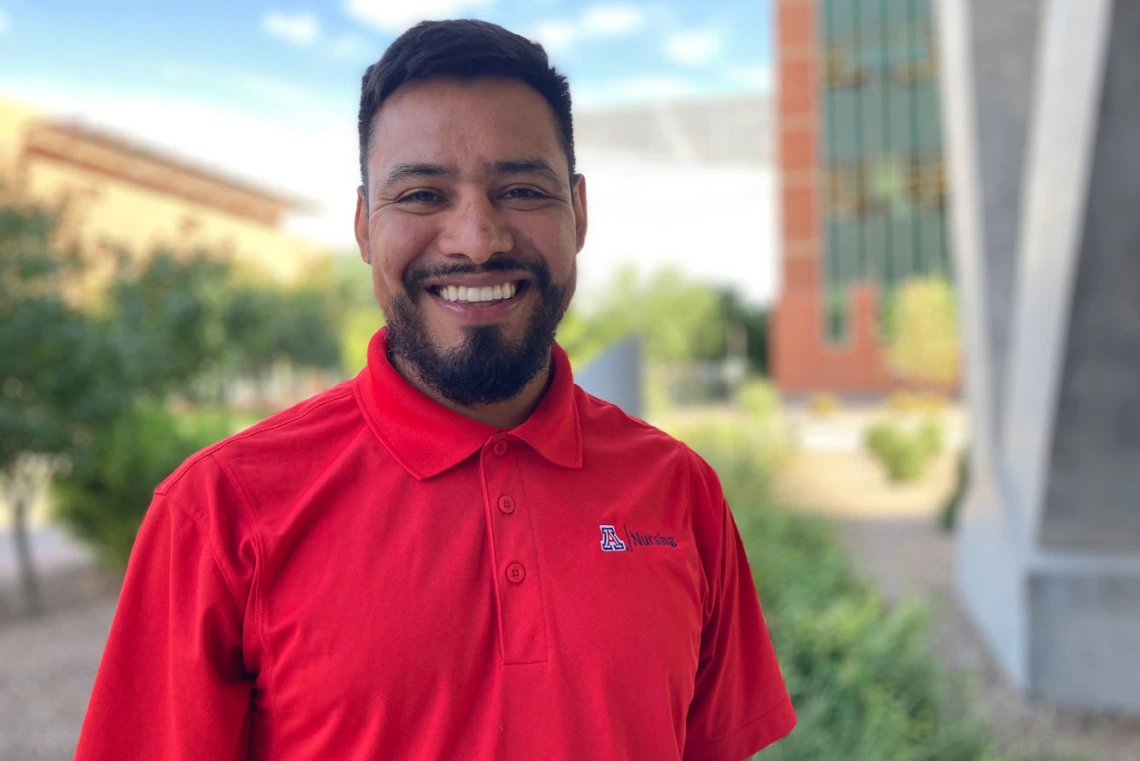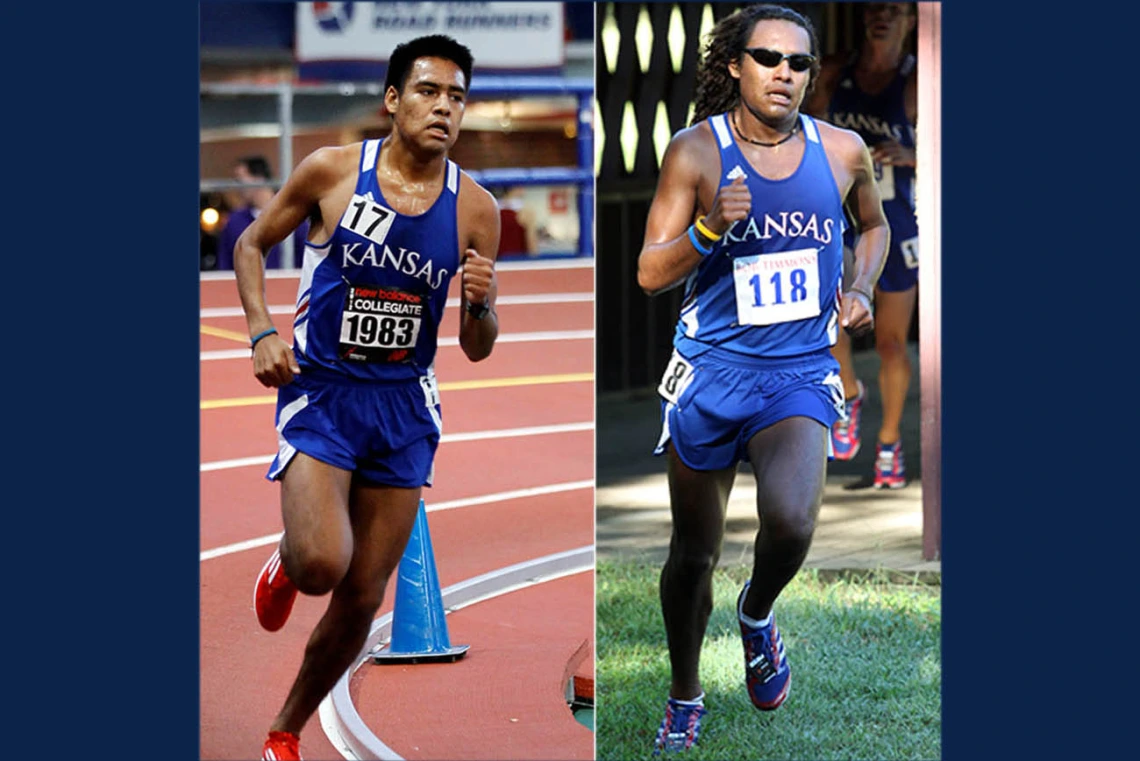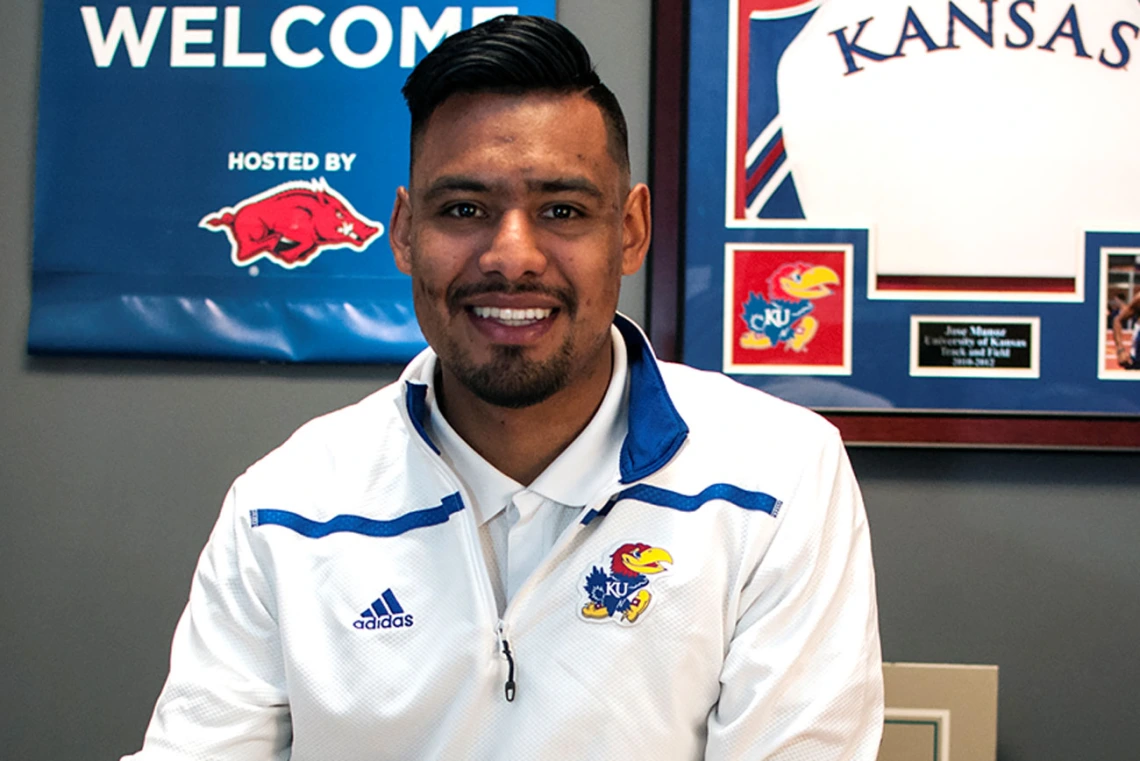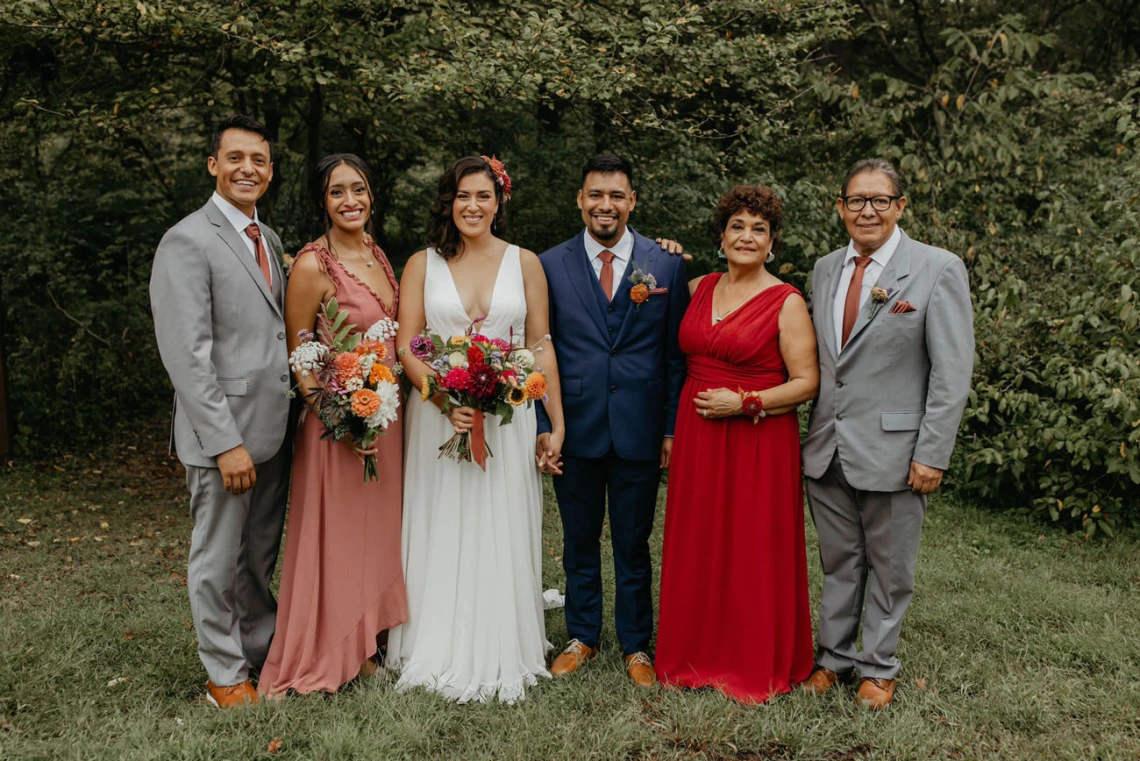Embracing the Journey in Running and Equity, Diversity and Inclusion
José Muñoz uses his experiences growing up in the U.S.-Mexico borderlands and time as a collegiate athlete to inspire his work at the College of Nursing.

I was born and raised in the borderlands of southern Arizona. Growing up in Rio Rico near Ambos Nogales was super special for me. I have family in both the United States and Mexico, so I’ve traveled back and forth to see my family, as well as go to the orthodontist, to restaurants, and for haircuts, too. I often felt like I was navigating two worlds – emotionally, physically and socially.
Running into Student Support
I’m not sure if I found running or if it found me. I started running competitively in middle school, and it was life-changing. Running has taken me places that I never imagined, including a full track-and-field scholarship to the University of Kansas.

At the University of Kansas, Muñoz ran the mile, 3k, 5k and 10k on the cross country, track and field team.
When I moved to Kansas, I started going to school at a predominantly white institution. I was completely removed from what I had known in Rio Rico – a small town where everyone spoke Spanish and looked like me. I began to think about my identities and why they weren’t being represented at the college. I started to speak up and share my experiences, countering peoples’ narratives about what it’s like to grow up in a town along the U.S.-Mexico border.
Unfortunately, I became injured and was medically disqualified during my junior year of college. It felt like my whole world crashed down around me. During that process, I was fortunate to have so much support. That whole experience made me want to become that support person for other students.
After I finished my undergraduate degree in sports management, I continued at the University of Kansas, this time working in student affairs and development in the athletic department. I thoroughly enjoyed working with student-athletes and supporting them holistically, both within and outside of their sport. That solidified my desire to work in higher education.
Creating Waves of Change
After 10 years in Kansas, my wife and I decided to move to Tucson. I'm grateful to be closer to my family and have the opportunity to professionally expand outside of student athlete support.

For almost 10 years after his athletic career, Muñoz worked in the University of Kansas’ student-athlete development unit, focusing on leadership training, community engagement and professional development.
I started working at the University of Arizona College of Nursing with our Doctor of Nursing Practitioner (DNP) and PhD students. After the murder of George Floyd in 2020, I was asked by the dean to co-chair an equity, diversity and inclusion taskforce. I built upon my diversity work at the University of Kansas with student-athletes, and I now work full-time as the Equity, Diversity and Inclusion officer in the College of Nursing. My goal is to create an inclusive and welcoming environment where everyone has that sense of, ‘Yes, I belong here.’
I spend a lot of time listening to different perspectives from faculty, staff and students. We want to be as proactive as possible and not just reactive to any issues.
I support students by trying to break down any barriers that might prevent them from accomplishing their nursing degree. We have different initiatives that focus on creating space and community for BIPOC (Black, Indigenous and People of Color), for them to connect and just be themselves. Ultimately, my goal is to create a space where students truly feel a sense of belonging.
I want to throw small stones that create millions of ripple effects, that way we can create bigger waves together. As I see it, it’s one interaction at a time. I try to be intentional so that collectively, we work together to create a college environment that everyone wants to be a part of.
Why Diversity Matters in Nursing
By 2040, the United States is going to be more diverse than it’s ever been. In order to give everyone the best care possible, it’s important to shape future nurses to be culturally responsive.
I don’t have all the answers. I see myself as a practitioner since I’m always learning how to navigate these complex systems.
We know systemic racism is embedded in the health care system. Nurses, and everyone for that matter, should have a fundamental understanding of health equity. That way we all have the ability to see how social determinants like food deserts and climate change can structurally impact vulnerable populations’ health, and we can work to take small steps to change that.

Muñoz married his wife, Alexandria Biddle, in September 2022. (From left) Mario Muñoz, Jocelyne Muñoz, Alexandria Biddle, Josè Luis Munoz Jr., Maru Muñoz and Josè Luis Muñoz, Sr.
My time as an athlete taught me so many valuable lessons, and it’s really a metaphor for life. I often think about what one of my role models, Olympic athlete Billy Mills said: “It’s not the destination but the journey that will empower you.” I keep that in mind in whatever I do in my life.
About the Author
José Muñoz is the Equity, Diversity and Inclusion officer at the University of Arizona College of Nursing. With over 10 years experience in student support, his goal is to create an inclusive and welcoming environment for everyone.

